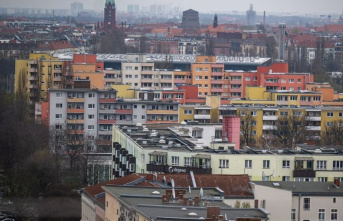According to the figures, 9.56 million people were born in China last year. At the same time, 10.41 million people died. This was the first time the population had declined since 1960 and 1961. The worst famine in China's modern history, caused by the "Great Leap Forward" industrialization program proclaimed by state founder Mao Zedong, killed millions at the time.
After decades of population growth, a demographic crisis is now emerging in China: the People's Republic has been experiencing a sharp decline in the birth rate and an aging population for years. Beijing fears that the aging society and a looming labor shortage could slow down economic growth.
The "one child policy" introduced in the 1980s because of the threat of overpopulation has therefore already been ended. Couples have been allowed to have two children since 2016. They have been allowed to have three children since 2021. Nevertheless, there was no birth boom.
Experts see the rising cost of living and a growing number of women who are well educated and employed as reasons for the development. People in China have also gotten used to small families thanks to the "one-child policy," says expert Xiujian Peng, who researches at Australia's University of Victoria.
The years of strict corona restrictions and their economic consequences have increased the uncertainty. "The economic pressure is great," says 30-year-old Huang from Beijing. "I'm not really thinking about having kids. If I can support myself, I might not even get a boyfriend. A lot of people feel that way now."
The Chinese authorities are now trying to encourage couples to have children. The southern Chinese city of Shenzhen pays young parents a premium of up to 10,000 yuan (a good 1,370 euros) and pays child benefits for three years. In Jinan, east China, couples having a second child will receive 600 yuan a month since January 1.
Experts believe a more far-reaching course change is necessary. What is needed is a "comprehensive package of measures covering birth, parenthood and education to reduce the cost of raising children," says researcher Peng. Above all, it is important to give young mothers more professional security.
According to demographers, China's population will continue to shrink in the coming years. According to a study by the Shanghai Academy of Social Sciences, the population could decline by an average of 1.1 percent each year. According to the most pessimistic forecasts, China could only have 587 million inhabitants in 2100.
A shrinking and aging population is a "real problem" for China, says Peng. She expects a massive impact on China's economy by the end of this century.











